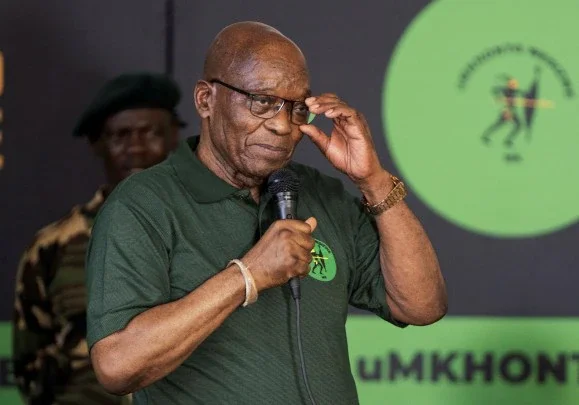On October 24, 2025, a South African court delivered a bold verdict, ordering former President Jacob Zuma to repay over €1 million in public funds misused to cover his personal legal battles.
The Pretoria High Court’s decision marks a significant moment in South Africa’s fight against corruption, holding Zuma accountable for diverting state money.
With a 60-day deadline to comply, the ruling puts pressure on the former leader, whose tenure ended in 2018 amid scandal.
This isn’t just a fine it’s a demand for justice.
The Case Against Zuma
Zuma’s presidency was clouded by corruption allegations, leading to his ousting in 2018. The court found he illegally used taxpayer money to fund legal defenses in his personal corruption cases. In 2021, Zuma’s lawyers argued he wasn’t liable, claiming the state should cover the costs.
The Pretoria High Court rejected this, ruling that Zuma’s actions were unlawful and that he must repay the €1 million, a sum tied to years of legal proceedings.
The verdict draws a line against misuse of public resources.
Consequences Loom
If Zuma fails to repay within two months, authorities may seize his presidential pension, a move that could deepen his financial woes.
Zuma, speaking briefly after the ruling, said he would consult his legal team to plan his next steps but offered no clear response. The clock is ticking, and South Africans are watching closely to see if the former leader complies.
Non-compliance could escalate the stakes dramatically.
Public and Political Reaction
The opposition Democratic Alliance (DA), South Africa’s second-largest party, hailed the ruling as a victory for accountability. “We expect Zuma to honor his duty to the nation,” a DA spokesperson said, reflecting public sentiment for justice.
Social media buzzed with reactions, from applause for the court’s resolve to calls for stricter anti-corruption measures. The ruling has reignited debates about leadership and public trust.
The DA’s support underscores the ruling’s broad impact.
Zuma’s Troubled Legacy
Zuma’s nine-year presidency was marked by economic challenges and corruption scandals, including allegations of state capture. His legal battles have cost South Africa millions, fueling public frustration.
The court’s decision to hold him liable for €1 million in legal fees sends a message: no one is above the law. It also strengthens ongoing efforts to recover misused funds from other cases tied to Zuma’s era.
His legacy remains a flashpoint for South Africa’s future.
A Broader Fight
South Africa’s anti-corruption drive gains momentum with this ruling. The Pretoria High Court’s stance signals a crackdown on officials misusing public funds.
As the nation grapples with economic inequality, such decisions resonate with citizens demanding fairness. The case also pressures other leaders to act transparently, setting a precedent for accountability in governance.
This verdict could reshape South Africa’s political landscape.
What’s Next?
With 60 days to repay €1 million, Zuma faces a critical moment. Will he comply, or risk losing his pension? The court’s ruling has sparked hope for justice but also questions about enforcement.
As South Africa watches, the world sees a nation confronting its past to build a fairer future. The outcome will test the strength of its anti-corruption resolve.
Nigeria’s House Probes $4.6B Health Aid Amid HIV/AIDS Crisis




















